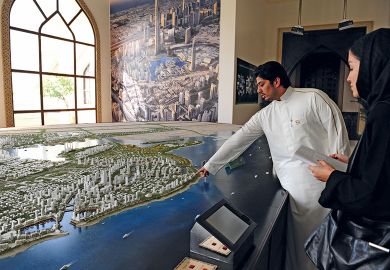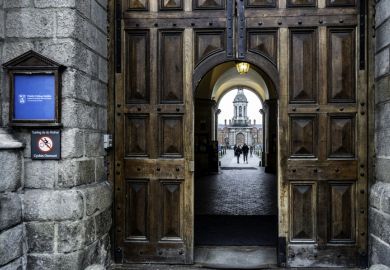Pakistan has emphasised the importance of quality controls on transnational education (TNE) programmes in the country as demand continues to grow.
The country’s Higher Education Commission (HEC) has formally approved a new transnational education policy, setting out how Pakistan’s higher education institutions can offer degree programmes in collaboration with foreign universities and establish branch campuses abroad.
While Pakistan’s institutions already offer numerous transnational education programmes, the landscape has often been a murky one to navigate for overseas universities. However, analysts saw the new regulations as a sign that this was changing.
“It signals the realisation that lack of clarity in regulation might have acted in the past as an obstacle for foreign providers coming in,” said Fabrizio Trifirò, director of the international education consultancy Q-intled.
Under the policy, foreign institutions can offer degree programmes in Pakistan if they are among the 700 top-ranked universities in the world.
There are also specific requirements around local contexts, with institutions required to “strictly comply with and respect the constitutional provisions, local laws, and the ideology of Pakistan”.
The HEC has also further clarified guidelines for foreign universities wishing to establish branch campuses in Pakistan. Currently, not a single Western university has a branch campus in Pakistan.
However, signs suggest that demand for international education is growing among the country’s young, with nearly 34,000 Pakistani students issued a UK study visa for the year ended June 2024 – a 17 per cent annual rise.
The popularity of British transnational programmes is also growing, with the number studying UK qualifications in Pakistan climbing by almost 20 per cent in each of the past two years, reaching 9,770 in 2021-22.
But concerns about quality assurance remain. Earlier this year, the HEC issued a warning about Pakistani institutions in violation of guidelines when offering qualifications in collaboration with foreign universities.
“As a result, students are facing problems to get recognition/equivalence of their degrees,” the statement read.
Experts believe the new guidelines are in part an attempt to reassure foreign institutions of the importance of quality control to Pakistan’s regulators.
“These new regulations also signal Pakistan’s commitment to ensure that TNE in the country is regarded internationally as good quality, which might further help in enhancing the reputation of the country as an attractive place to do TNE,” said Dr Trifirò.
The guidelines also set out how Pakistani institutions can set up campuses abroad, including advising any universities intending to do so to “pay greater attention to quality of education to remain attractive and competitive”.
According to Stephen Wilkins, an expert on transnational education and former professor at the British University in Dubai, current Pakistani branch campuses target mainly Pakistani nationals living in other countries.
“Pakistani institutions don’t have a great track record in the delivery of transnational education,” he said, with quality often an issue.
“However, it is possible that if Pakistani institutions can up their game and achieve similar levels of quality compared to other universities, while charging lower tuition fees, they may be able to attract and satisfy both Pakistani and non-Pakistani students in a number of Muslim countries across the Middle East and Central Asia regions.”
Register to continue
Why register?
- Registration is free and only takes a moment
- Once registered, you can read 3 articles a month
- Sign up for our newsletter
Subscribe
Or subscribe for unlimited access to:
- Unlimited access to news, views, insights & reviews
- Digital editions
- Digital access to THE’s university and college rankings analysis
Already registered or a current subscriber? Login








